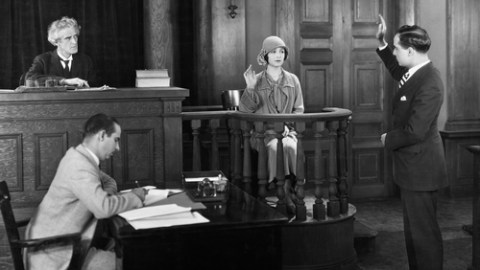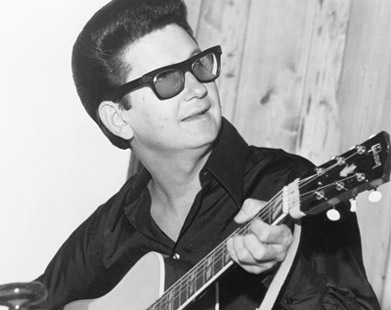Time to End Eyewitness Testimony?

This article originally appeared in the Newton blog on RealClearScience. You can read the original here.
The courtroom is hushed.
A teenage boy has been slain, riddled with bullets during a drive-by shooting, and there, on the witness stand, is his crying mother. She’s understandably weeping, wracked by the senseless killing of her darling son. Even worse, she witnessed it all.
“Ma’am, is the man who murdered your son present here today?” the prosecutor questions.
Through the tears, streaming freely, their flow rekindled from having to relive and recount such a horrible event, she manages a nod.
“Can you point him out for us?”
A pause, followed by emphatic pointing at the defendant.
“That’s the man! He killed my baby!”
Eyewitness testimony has been a central facet of the American judicial system for centuries. Spirited, dramatic exchanges between attorney and witness are what draw us to courtroom dramas and news stories about pretty women who murder their boyfriends.
There’s scant evidence more damning than the sworn statement of a bereaved mother who firmly asserts the guilt of the defendant, especially if such evidence is corroborated by other eyewitnesses.
But eyewitness testimony is merely the product of human memory, and decades of scientific evidence have demonstrated that memory is glaringly fallible.
“All our memories are reconstructed memories,” forensic psychologist Scott Fraser explained at TEDxUSC last May. “They are the product of what we originally experienced and everything that’s happened afterwards. They’re dynamic. They’re malleable. They’re volatile…”
And they can easily be corrupted. According to Fraser:
“Under the best of observation conditions, the absolute best, we only detect, encode and store in our brains bits and pieces of the entire experience in front of us… So now, when it’s important for us to be able to recall what it was that we experienced, we have an incomplete [memory], and what happens? …The brain fills in information that was not there, not originally stored, from inference, from speculation, from sources of information that came to you, as the observer, after the observation. But it happens without awareness such that you… aren’t even cognizant of it occurring.”
Since 1992, The Innocence Project has exonerated 306 innocent individuals who were mistakenly convicted of a crime. In three-quarters of these cases, incorrect eyewitness testimony sent those people to prison, by far and away the most common reason. What’s startling is that in the vast majority of these cases, witnesses weren’t lying. They profoundly and genuinely believed that the people they accused were the perpetrators of the crimes.
This can happen for a lot of reasons. For one, crimes are often emotional and traumatic experiences, and such emotion can have a marked effect on memory. In a study published in February, University of Texas psychologists found that subjects who viewed a video of a mugging were able to recall the event and describe the perpetrator more vividly than subjects who simply watched a video of a conversation, providing more details and ascribing more certainty to their descriptions.
However, in a second experiment, the researchers found that vividness did not correlate with accurate recall. Subjects who witnessed the crime were less able than subjects who watched a conversation to recognize the people involved from a photographic lineup.
False memories can also arise throughout the judicial process. Investigators can easily influence — intentionally or unintentionally — the memory of eyewitnesses. Rudimentary verbal or nonverbal affirmations can cause witnesses to become surer of their memories. Suggestive questions by prosecutors can lead to the emergence of novel, erroneous details in witnesses’ memories, and cause witnesses to “recall” events that may have never actually happened.
The key, Fraser reminds us, is to be cautious. “The accuracy of our memories is not measured in how vivid they are nor how certain you are that they’re correct,” he said.
But we can do more than simply be vigilant of our memory’s shortcomings. Given its fallibility, one could go so far as to argue that limits should be placed on eyewitness testimony. Perhaps it should be restricted in cases where forensic analysts can determine that vision was hindered, such as in crowds or at night? Maybe more than one eyewitness should be required for such testimony to be allowed in court? Maybe eyewitness accounts should be disallowed altogether in capital trials?
One simple action that can be taken is to mandate double-blind lineups in police stations. This means that the investigator conducting a photo or live lineup will not be aware of who the suspect is. That way, he or she won’t be able to influence the witness, knowingly or unknowingly.
We would also be wise to follow New Jersey’s example. There, judges are now required to inform juries that “certain factors about an eyewitness’s circumstances at time of the offense could render the testimony less reliable. Those factors include the stress the eyewitness was under, the duration of the event, lighting, distance, the eyewitness’s focus on a weapon, and cross-racial identification.”
Such a basic reminder is undeniably warranted. In a 2011 nationwide survey of 1,838 individuals, 37.1% of respondents were found to believe that “the testimony of one confident eyewitness should be enough evidence to convict a defendant of a crime.”
Such thinking is clearly faulty. The truth is not what somebody believes it to be, no matter how adamantly they swear it to be so. Our court system must be insulated from the fallibility of memory.
(Image: Swearing in a Witness via Shutterstock)





